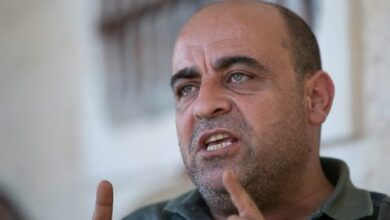Egypt's transitional government won't end human rights abuses until it lifts emergency rule and ends military trials, Human Rights Watch said Tuesday.
The New York-based organization also demanded in a report that the government investigate allegations of virginity testing and torture.
Human rights abuses plagued Egypt during President Hosni Mubarak's 29-year rule. Under the country's interim military rulers, rights abuses have continued to motivate protesters, who decry police brutality, the use of so-called virginity tests on women activists and military tribunals for civilians. The military has led crackdowns on peaceful protests since Mubarak fell on 11 February.
Rights activists have raised claims that several people have been killed by security forces in recent weeks.
"At this critical period of transition, the military should make a clear break with the repressive policies of the past, and this means ending military trials, repealing the emergency law and laws that restrict freedoms," said Kenneth Roth, Human Rights Watch's executive director. "Egypt has started to try some former officials, but unbroken impunity for the systematic torture of Egyptians over the past decades will only invite reoccurrence of abuse."
The group also criticized the use of so-called virginity tests. The government recently ordered an end to the tests, which it claimed were used to protect women against rape allegations. It denied that police did anything wrong by using them.
The virginity test allegations first surfaced after a 9 March rally in Cairo's Tahrir Square that turned violent when men in plainclothes attacked protesters and the army forcefully cleared the square.
One woman who was arrested spoke out about her treatment. Amnesty International documented the abuse allegations in a report that found 18 female detainees were threatened with prostitution charges and forced to undergo virginity tests. That report said the detainees were also beaten and given electric shocks.
Human Rights Watch said it interviewed 16 men and women who alleged they were tortured, beaten and whipped by military officers. Some also said they were tortured with electroshocks.
On Tuesday, a Human Rights Watch delegation ended three days of meetings with Egyptian officials, including Prime Minister Essam Sharaf, to discuss Egypt's democratization process.
The meetings were not a "comfortable process" for Egypt's military government, which is "not used to being questioned," said Sarah Leah Whitson, the group's Middle East and North Africa director.
Whitson said Sharaf and his Cabinet "went out of their way to assure us of their commitment to human rights."
That commitment has been questioned by the youth protest movement. Last month, leaders of more than 20 youth groups rejected an invitation from the government for a "national dialogue" meeting, saying it was hastily called as human rights violations and attempts to silence critics continued.




